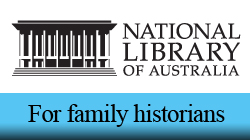Deutschland Downunder
This website and the information and resources contained here is a culmination of a dream and passion to research and document the cultural vestiges and folkways of the German-Queensland pioneer ways. The research has involved many years of talking and getting to know the people, recording and documenting their folklore, stories, customs and music and having a great time doing this. Many days and nights have been spent walking and driving the back roads of the vast Queensland bush. If this website can bring attention to a ‘lost culture’ – that of the German-Queensland pioneers and their culture, it will have served its purpose.
From the early 1850s until the years just prior to World War I (1914) thousands of immigrants from the central and northern European provinces today known as Germany travelled by ship in their bid to start a new and better life in Queensland, Australia. They arrived under sail in the bustling coastal ports of Brisbane, Maryborough, Bundaberg, Rockhampton and Bowen, in northern Queensland. At that stage the agricultural settlement of a previously untamed Australian continent was underway. Squatters required workers to tend livestock in isolated bush regions of Queensland in later in the late 1800s agricultural settlements were being developed.
In southern Queensland the ‘German pioneer settlers’ were the largest group of migrant settlers and with the Irish, Scottish and Scandinavian immigrants supplemented a largely Anglo-Saxon population. However the German settlers gravitated towards rural enterprises. Although many German immigrants became respectable tradesfolk and businessmen in Brisbane, Ipswich, Toowoomba and other coastal centres, the majority became skilled farmers in the coastal and sub-coastal scrublands. For decades and generations the sound of the axe was common and verdant scrublands were transformed into rich agricultural settlements. Drought and floods had their way, but the German-Queensland farming settlements expnded and were very productive. These ‘German’ settlements maintained a distinctive culture, language and folklore over 2-3 generations. Although two world wars had enormous impacts on cultural persistence of their homeland ways, much pride in being of German descent is still evident in many of these ‘lost’ communities to this very day.
The development of this website is based on a long-term research program undertaken by the author (Mark Schuster) from 1986 until present. Intensive research, including oral history and documentation was undertaken to unravel the history, settlement patterns, folklore and surviving culture of the German immigrants to rural southern Queensland. More than twenty years of research have culminated in self-published books, articles and an extensive sound recording archival collection, now catalogued and held by the National Library of Australia (Canberra).
Particular emphasis was made to document the German heritage of the Darling Downs region, centred on Toowoomba. To record the German contribution to the development of Toowoomba, the region and southern Queensland is particularly relevant when you consider the enormous contribution the German immigrant families have made to Queensland. For instance, in Toowoomba alone, a number of pioneering families such as the Thiess, Wagner and Berghofer descendants have played a huge role in regional development in Queensland. In addition the hardworking German-Queensland rural families have developed the agricultural sector of southern Queensland to a very high capacity.
A number of issues have prompted the author to now pursue a more ambitious plan to document the full German-Queensland contribution to Australian settlement to set the record straight and provide a very sound base for recognising the huge contribution the German people have made to the settlement, development, history and culture of the Australian nation.
For instance for far too long the majority of the Australian population has thought:
- All German settlement was concentrated in the Barossa Valley of South Australia;
- The Lutheran religion was the sole religious affiliation of all German immigrants to Australia;
- The German language spoken in Australia was a single standard language;
- There was no internment of Australian citizens of German ancestry during the two World Wars.
Have a good read of the articles, listen to the traditional music, laugh at the poems and stories and marvel at the vestiges of a lost culture – that of the German-Queensland farming community.
“Ich hatt’ einen kameraden”
Dedicated to the memory of Erich Volker, Mt Rascal, Drayton (1919 – 2004) – Farmer, philosopher, historian and poet. A man of diverse talents, a proud and upright German-Queenslander and my inspiration for this work.


